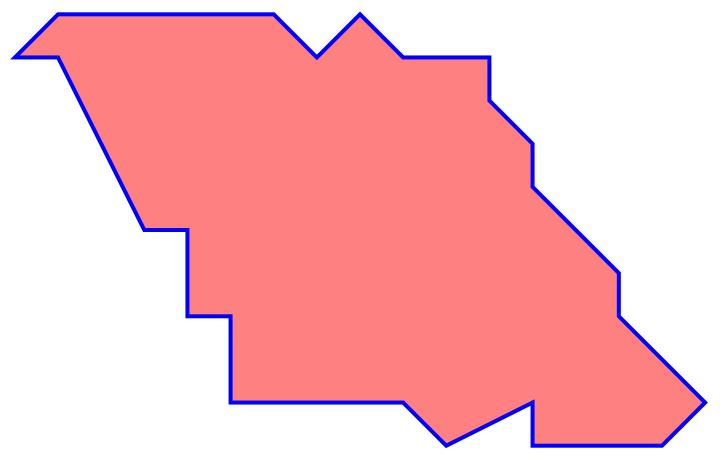Bug introduced in 10.0 and fixed in 12.0.
I am seeing a difference in RegionMember[ ] testing a point inside a 3-vertex polygon and testing a point inside a more complex polygon:
poly1 = {{0, 0}, {4, 0}, {2, 2}};
Print[RegionMember[Polygon[poly1], {0, 0}]];
(*=>True*)
poly2 = {{11, 10}, {10, 11}, {9, 12}, {9, 13}, {8, 14}, {7, 15}, {7,
16}, {6, 17}, {6, 18}, {5, 18}, {4, 18}, {3, 19}, {2, 18}, {1,
19}, {-1, 19}, {-2, 19}, {-3, 19}, {-4, 19}, {-5, 18}, {-4,
18}, {-3, 16}, {-3, 16}, {-2, 14}, {-1, 14}, {-1, 12}, {0,
12}, {0, 10}, {1, 10}, {2, 10}, {3, 10}, {4, 10}, {5, 9}, {7,
10}, {7, 9}, {9, 9}, {10, 9}};
Print[RegionMember[Polygon[poly2], {0, 0}]];
(*=>Long Expression*)

How can I force
RegionMember[ ] to evaluate to True or False?
(I'm using Version 11.3.0.0 under MacOS X.)

RegionMember[]to help make an animation in response to the MO question, "Visual proof of convergence for Steiner's symmetrization." $\endgroup$